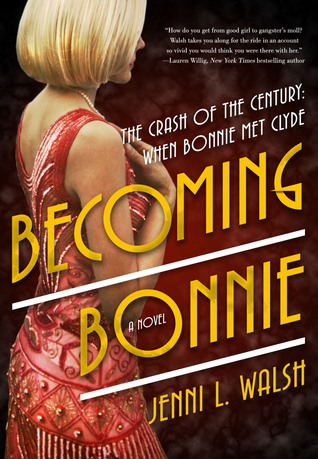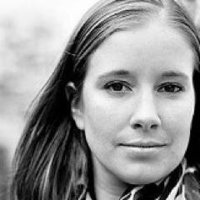 I am so excited to be a part of the launch for Becoming Bonnie. Recently, I was able to have a lovely chat with Jenni about her new book.
I am so excited to be a part of the launch for Becoming Bonnie. Recently, I was able to have a lovely chat with Jenni about her new book.
From the very first paragraph, Bonnie has such a clear strong voice. What went into capturing that?
I had such a great time writing Bonn’s and also her best friend, Blanche’s, voices. It’s interesting, both these ladies voices just came to me. I’d be showering or cooking or playing hide and seek with my two kids and, meanwhile, Bonn and Blanche would be bantering in my head. I’d reach for my phone or a notepad or whatever I could get my hands on and quickly try to get the words recorded. Quite a few times I’d dash out of the shower and to my computer and start writing. My hair would dry all sorts of crazy and I’d often be late for dinner. It became pretty common for my husband to put my plate in the microwave because he knew I’d need to heat it up when I finally came down for dinner.
The narrative for Bonnie is that she has had a Kardashian-like drive to be famous from day one but frankly you portray her as a good church going girl that is highly relatable. What did you find in your research that drew you to this conclusion?
I believe Bonn’s desire to be in the limelight was in her blood. In real life, once upon a time, her mother Emma had her heart set on climbing the social ladder. Living in a small town south of Dallas, the Parker family was doing pretty well for themselves. I’m not sure how high Emma got up that ladder, but her dreams came crashing down when Bonnie’s dad passed away. Emma had no choice but to pack up Bonn and her two siblings and move to a small industrial suburb of Dallas known as Cement City. There, Emma became a seamstress. When Bonnie was older, she took on waitress jobs so they could make ends meet for their family. Throughout it all, I wonder if Bonn saw herself in the limelight as a different path she could take in life, almost like her mother set her sights on a life in high society. It was that wonder that infused Bonnie’s desire in Becoming Bonnie to be more than poor. Bonnie states she’ll have dreams and money.
When looking at Bonnie Parker and her life do you think that Bonnie was a product of the times, the great depression etc, or was this something bubbling in her nature?
Yes, all of the above. The roaring twenties wasn’t roaring for everyone, especially a family like the Parker’s where Bonnie’s mother was the breadwinner, as Bonnie’s father had died. After the stock market crash and the depression settled over America, Bonnie suffered even more financially and, in Becoming Bonnie, the banks essentially stole her dreams from her. A lot of people during that time were angry with banks and the government and would turn their heads when they saw people committing crimes. Bonnie’s nature may also have attributed to her attraction to Clyde. Today, there’s a condition called hybristophilia, which is also known as the “Bonnie and Clyde Syndrome” where women are attracted to others who commit heinous crimes. Over the years, there’s been other infamous examples of hybristophilia: the gaggle of women who wrote love letters and attended the trial of Ted Bundy, the many groupies of Charles Manson, and Jeffrey Dahmer‘s admirers, who sent him countless gifts and money while he was in prison.
It’s interesting, you have broken up Bonnie’s story into two books; this book and then Being Bonnie which is expected to come out next year. Most biographical historical fictions are all one book spanning the characters life. Why did you break  it up into two books?
it up into two books?
As I mentioned, Bonnie was someone with stars in her eyes. I dug deeper and learned she was church-going, she got straight As she won spelling bees, she participated in beauty pageants and talent shows. That Bonnie seemed very far and different from the girl who’s now synonymous with gangster and outlaw, and I found my first couple chapters littered with backstory as I tried to show how Bonnie got to the point where she was willing to risk it all for a boy she loved, which (hint hint) is how Becoming Bonnie ends, but I won’t reveal how she risks it all. I decided I needed to back up, way up. That included showing that Clyde wasn’t Bonnie’s first love. I wanted to fully tell that romantic story arc and how it ultimately set up Bonnie’s grand love with Clyde. In the end, Becoming Bonnie felt like a very different story than the crime-spree story and I thought it deserved it’s own book and also that Bonnie deserved her own identity to go along with the story. I gave her a fictional name of Bonnelyn at the onset of the story, and as readers we watch her evolve from Bonnelyn to Bonnie.
4. Biographical historical fictions is my favorite sub-genre of historical fiction (I am working on my own book right now within the genre). Later this week I plan on doing a post about biographical historical fiction, what are your thoughts on the genre?
Mine too! Whenever I hear about a biographical story, I immediately want to learn more (like how I want to learn more about your book!). I find the sub-genre so interesting, mainly because that person is iconic for a reason. I love the inside look a novel gives not only into a person’s life, but also into a historical situation, time period, and event. Those stories feel timeless to me, even tho they are dated to a specific era.
[…] I had the pleasure of Interviewing Jenni L. Walsh this week about her book, Becoming Bonnie. […]
LikeLike